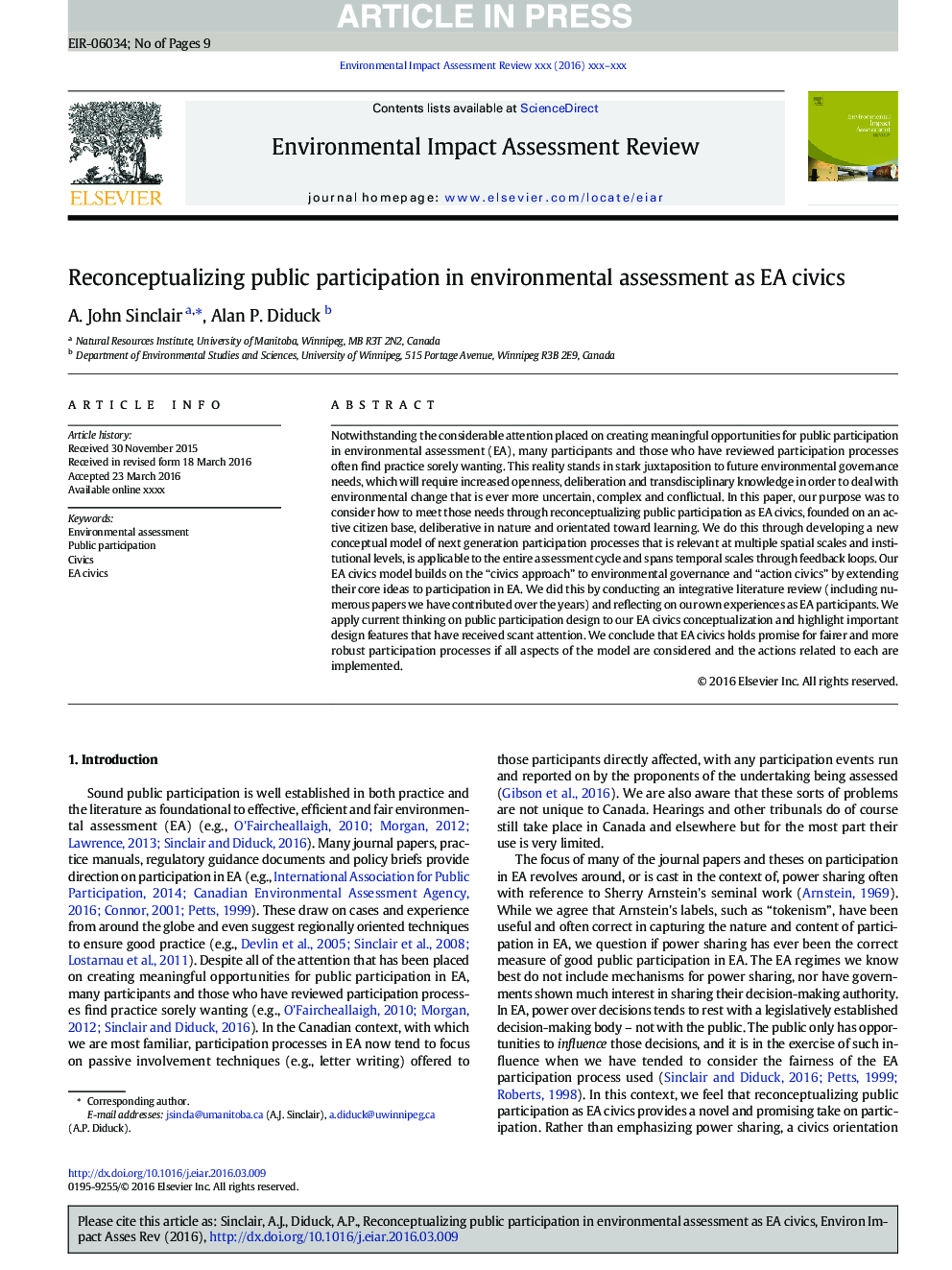| Article ID | Journal | Published Year | Pages | File Type |
|---|---|---|---|---|
| 7465060 | Environmental Impact Assessment Review | 2017 | 9 Pages |
Abstract
Notwithstanding the considerable attention placed on creating meaningful opportunities for public participation in environmental assessment (EA), many participants and those who have reviewed participation processes often find practice sorely wanting. This reality stands in stark juxtaposition to future environmental governance needs, which will require increased openness, deliberation and transdisciplinary knowledge in order to deal with environmental change that is ever more uncertain, complex and conflictual. In this paper, our purpose was to consider how to meet those needs through reconceptualizing public participation as EA civics, founded on an active citizen base, deliberative in nature and orientated toward learning. We do this through developing a new conceptual model of next generation participation processes that is relevant at multiple spatial scales and institutional levels, is applicable to the entire assessment cycle and spans temporal scales through feedback loops. Our EA civics model builds on the “civics approach” to environmental governance and “action civics” by extending their core ideas to participation in EA. We did this by conducting an integrative literature review (including numerous papers we have contributed over the years) and reflecting on our own experiences as EA participants. We apply current thinking on public participation design to our EA civics conceptualization and highlight important design features that have received scant attention. We conclude that EA civics holds promise for fairer and more robust participation processes if all aspects of the model are considered and the actions related to each are implemented.
Related Topics
Physical Sciences and Engineering
Energy
Renewable Energy, Sustainability and the Environment
Authors
A. John Sinclair, Alan P. Diduck,
